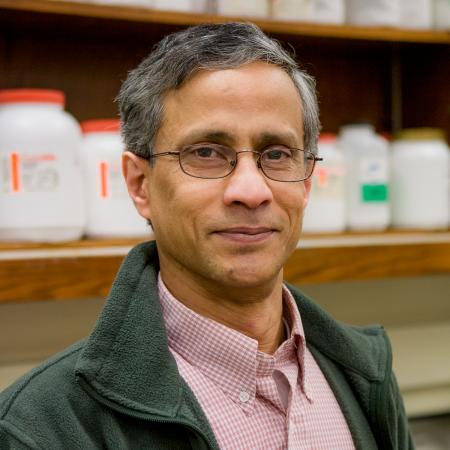
Susan Madison-Antenucci, Ph.D.
Director, Parasitology Laboratory

Nicholas J. Mantis, Ph.D.
Chief, Microbial Pathogenesis and Immunology
We study how serum and mucosal antibodies protect mammalian hosts from microbial pathogens and toxins. We are interested in next-generation vaccines and adjuvants to combat biothreat agents and enteric diseases.

Paul Masters, Ph.D.
Molecular Genetics of Coronaviruses
We use genetics and molecular biology to learn how coronaviruses, a family of RNA viruses including the agents that cause SARS and MERS, replicate their genetic material and assemble into virions during infection.

Kathleen A. McDonough, Ph.D.
Director, Division of Infectious Disease
We study gene regulation in the context of bacterial pathogenesis, with a focus on two pathogens: Mycobacterium tuberculosis, the bacterium that causes TB, and Yersinia pestis, the etiologic agent of bubonic and pneumonic plague.

Lisa Mingle, Ph.D.
Bacteriology Laboratory

Kara Mitchell, Ph.D.
Bacteriology Laboratory

Kimberlee A. Musser, Ph.D.
Clinical Director, Wadsworth Center David Axelrod Institute
We develop molecular diagnostic assays and reference testing for the detection and characterization of pathogenic bacteria and mycobacteria and to predict antibiotic resistance using real-time PCR and whole genome sequencing.

Dilip Nag, Ph.D.
Arbovirus Laboratory
We study mosquito-borne arboviruses, focusing on vertical transmission and persistent arboviral infections in mosquitoes. We are also interested in determining the role of RNA-RNA recombination in virus evolution.

Anil K. Ojha, Ph.D.
Mycobacterial Persistence and Pathogenesis
We investigate the influence of biofilm growth on the mechanisms of pathogenesis, persistence and drug tolerance in mycobacterial pathogens, with particular emphasis on Mycobacterium tuberculosis.

Joseph Orsini, Ph.D.
Newborn Screening Program
We focus on simplifying and automating published low-volume newborn screening tests in order to transform them into high-volume assays.

Jon Paczkowski, Ph.D.
Microbial Signal Transduction and Cell-cell Communication
We seek to understand bacterial communication by investigating how bacteria interpret autoinducers and elicit appropriate gene expression, and, more globally, to understand how all organisms decode environmental stimuli.

Patrick J. Parsons, Ph.D.
Director, Division of Environmental Health Sciences
We study human exposure to toxic metals/metalloids (biomonitoring) and long-lived nuclides (radiobioassay); and develop novel speciation methods by coupling LC and GC to ICP-MS, while using portable XRF for field-based studies.

Janice D. Pata, Ph.D.
Polymerases, Mutations, and the Evolution of Antimicrobial Drug Resistance
We study the molecular mechanisms by which multiple DNA polymerases replicate bacterial genomes completely, with high accuracy and tolerance for DNA damage, yet also create mutations that give rise to antibiotic resistance.

Leonard F. Peruski, Ph.D., M.Sc.
Director, Wadsworth Center

Melissa Prusinski
Ecology of Ticks, Affiliation: Bureau of Communicable Disease Control, Division of Epidemiology, New York State Department of Health

Beverly Rauch, M.S.
Director, Clinical Laboratory Evaluation Program

Michael P. Ryan, Ph.D.
Associate Director of Regulatory Affairs

Carlos A. Saavedra-Matiz, M.D.
Newborn Screening Program
We are interested in the identification of molecular markers as predictors of disease in newborns. We also focus on clinical testing, development and implementation of molecular screening methods.

Anthony Saouma
Deputy Director, Division of Laboratory Operations
